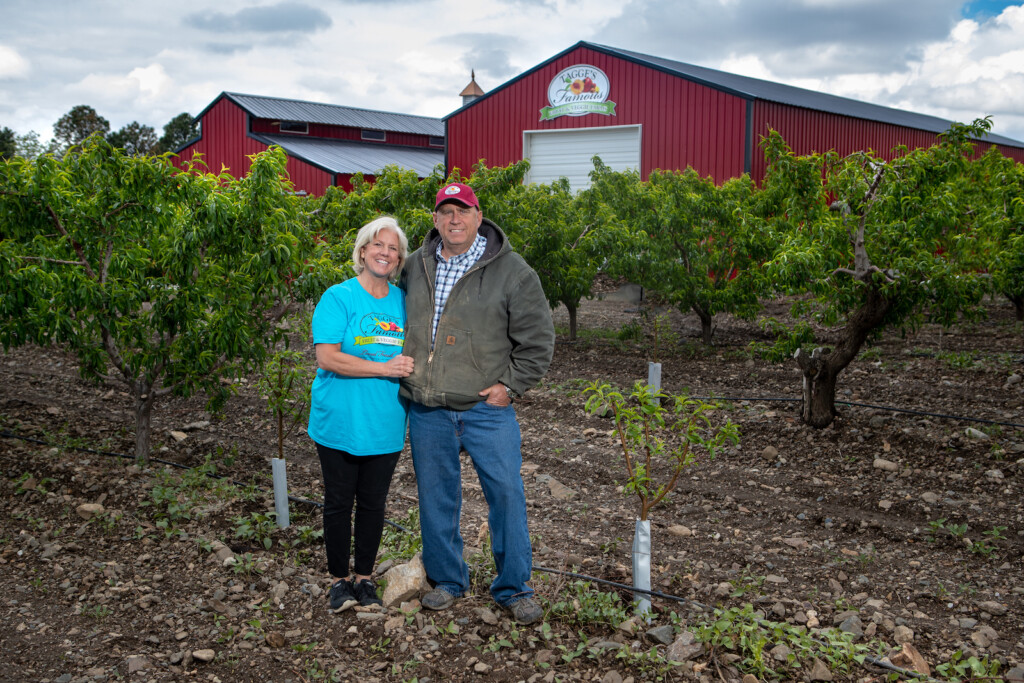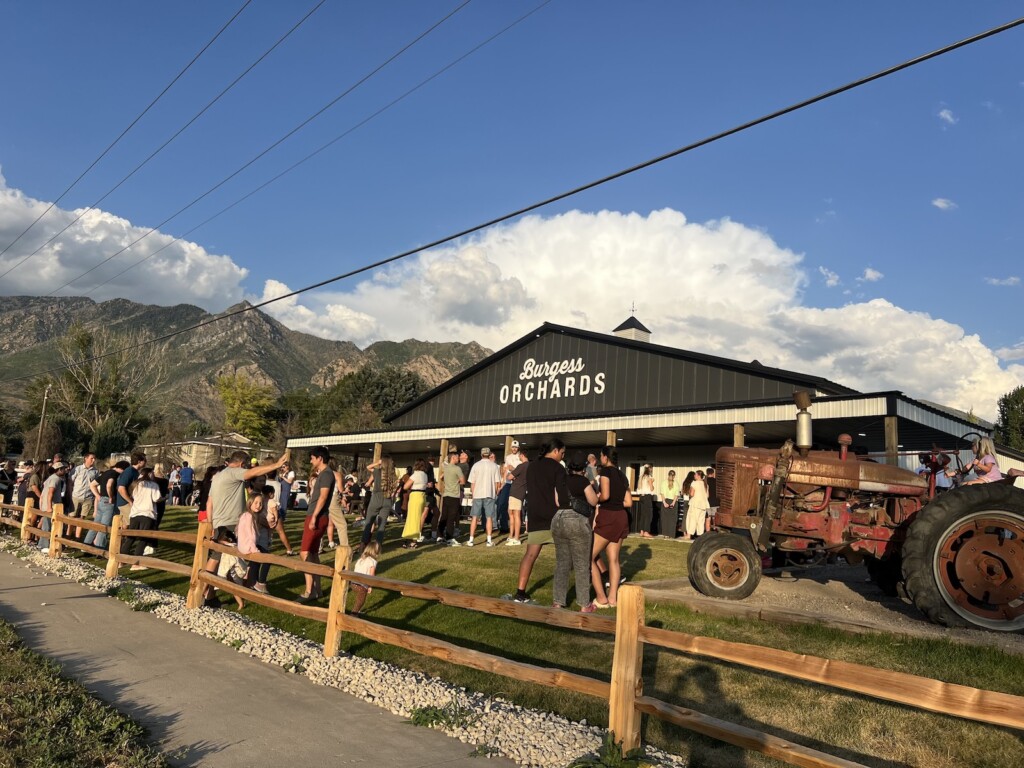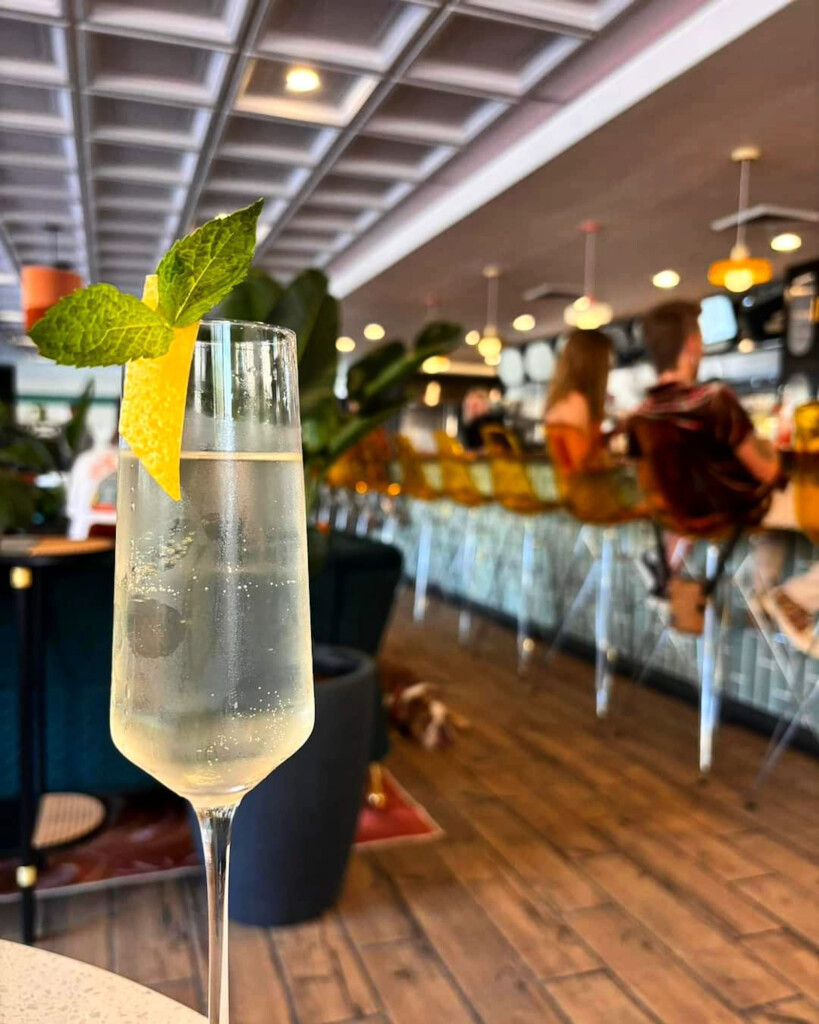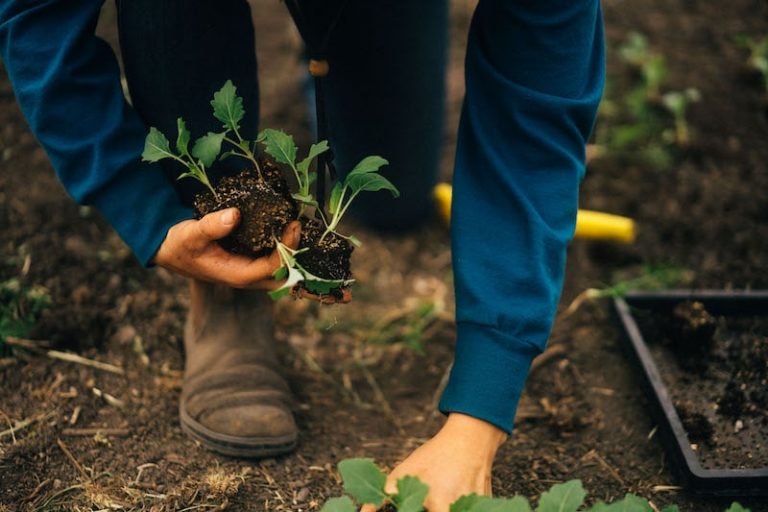
This summer will be Tamera and Randy Hed of Blue Spring Farm’s 19th year at the Downtown Farmers Market, but things are going to look a little differently this year. The typical festival-type atmosphere of the event will be reduced to simply a place to pick up essential foods like locally produced meats, dairy, and produce. There will be no arts and crafts booths, no prepared foods or seating areas, and social distancing practices will be in place.
“We’re glad that the farmers market is going to be able to go on this summer, but a little apprehensive about how we’re going to make it work,” says Tamera. For the safety of vendors and customers, the numbers of patrons will be controlled, cashless transactions will be enforced, and vendors will need more staff on hand to help with additional safety measures being put in place. Despite the changes and uncertainty, they’re determined to be at the market with all the produce they normally grow and have not reduced their produce planted this spring.
Blue Spring Farm has seen a huge increase in interest in their Community Supported Agriculture (CSA) shares this year, mostly attributed to pandemic concerns. Each CSA is a little bit different, but generally involves receiving a weekly box of fresh produce directly from the farmer during the growing season. CSA Utah provides a list of local farmers and growers offering CSA programs and some farms are still enrolling new members. Local farmers are also getting creative in how they sell goods online.
Jared Hankins, owner and lead farmer of Hand Sown Homegrown, started selling produce online in 2018 to get early spring crops into customer hands before the summer markets begin. He’s been overwhelmed with community interest this spring and has been selling out of produce each week. To help out fellow Utah farmers and producers, Hand Sown Homegrown is also offering several other local products through this service including pickled veggies and preserves from Cache Canning Co, Drake Family Farms goat cheese, and Clifford Family Farm eggs.
How it works is, customers order on their website Tuesday through Thursday and then pick up on Sunday mornings from locations in Salt Lake City. Jared loves selling directly to customers this way, and thanks to the community support plans to continue selling online year-round while also maintaining a presence at farmers markets throughout the year.
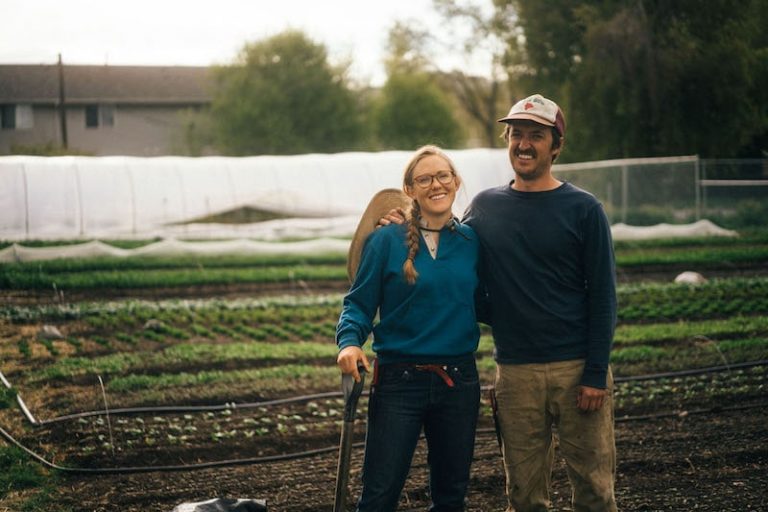
Amanda Theobald and Elliott Musgrove of Top Crops urban farm have also been toying with the idea of an online store. After some success posting available produce for pick up on Instagram, they’ve launched an online store with pickup at their downtown Salt Lake City farm. This allows them to stay flexible as they decide the best places to sell their produce as the pandemic situation evolves. “We feel really lucky that Salt Lake has a lot of people committed to eating locally and supporting small businesses,” says Amanda.

Local farmers aren’t the only ones getting creative with online stores. Markets are the lifeblood for local artisans and “losing the markets for the spring and summer and potentially the entire year is a huge loss to artisans, including myself,’’ says Kim Hall of Alpine Earthworks Pottery. She’s had to get creative promoting custom commission work and was thrilled by the level of support she received while throwing her first ever Instagram Live mug selling event.
“The times are hard on everyone right now and all small, local businesses are working hard to figure out new strategies to ensure we can pay our bills and still be viable businesses at the end of all of this, whenever that may be,” says Kim, “We will all have to adapt in ways I’m sure we aren’t even aware of yet.”


